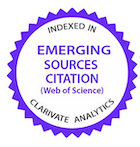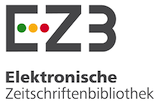Desempenho produtivo e contagem de linfócitos de coelhos sexados submetidos a duas densidades populacionais
Resumo
O objetivo desse experimento foi avaliar o desempenho e a variação no número de linfócitos de coelhos sexados criados em duas densidades populacionais. Foram utilizados 72 coelhos mestiços num delineamento em blocos ao acaso e esquema fatorial 2 x 2 (dois sexos e duas densidades populacionais), com quatro tratamentos e quatro repetições. Os coelhos foram desmamados aos 35 dias e abatidos aos 90 dias de idade. As densidades avaliadas foram 10 e 50 coelhos/m², correspondentes à ocupação de6 e 3 coelhos/gaiola. Não houve efeito significativo (P>0.05) em decorrência da densidade populacional, sexo ou interação densidade populacional x sexo sobre peso final, ganho de peso e consumo de ração diários, conversão alimentar e contagem de linfócitos. No entanto, houve efeito (P<0.05)do fator sexo para rendimento de carcaça, em que os machos apresentaram um melhor rendimento (55,80%) em relação às fêmeas (53,17%).PALAVRAS-CHAVE: Estresse, imunidade, produção animal.Downloads
Não há dados estatísticos.
Downloads
Publicado
2006-10-26
Como Citar
OLIVEIRA, Maria Cristina de; ARANTES, Uilcimar Martins; ALVES, José Antônio. Desempenho produtivo e contagem de linfócitos de coelhos sexados submetidos a duas densidades populacionais. Ciência Animal Brasileira / Brazilian Animal Science, Goiânia, v. 4, n. 2, p. 109–115, 2006. Disponível em: https://revistas.ufg.br/vet/article/view/309. Acesso em: 11 fev. 2026.
Edição
Seção
Produção Animal
Licença
Copyright (c) 2006 Ciência Animal Brasileira / Brazilian Animal Science

Este trabalho está licenciado sob uma licença Creative Commons Attribution 4.0 International License.
Autores que publicam nesta revista concordam com os seguintes termos:
- Autores mantém os direitos autorais e concedem à revista o direito de primeira publicação, com o trabalho simultaneamente licenciado sob a Licença Creative Commons Attribution que permite o compartilhamento do trabalho com reconhecimento da autoria e publicação inicial nesta revista.
- Autores têm autorização para assumir contratos adicionais separadamente, para distribuição não-exclusiva da versão do trabalho publicada nesta revista (ex.: publicar em repositório institucional ou como capítulo de livro), com reconhecimento de autoria e publicação inicial nesta revista.
- Autores têm permissão e são estimulados a publicar e distribuir seu trabalho online (ex.: em repositórios institucionais ou na sua página pessoal) a qualquer ponto antes ou durante o processo editorial, já que isso pode gerar alterações produtivas, bem como aumentar o impacto e a citação do trabalho publicado (Veja O Efeito do Acesso Livre).


























